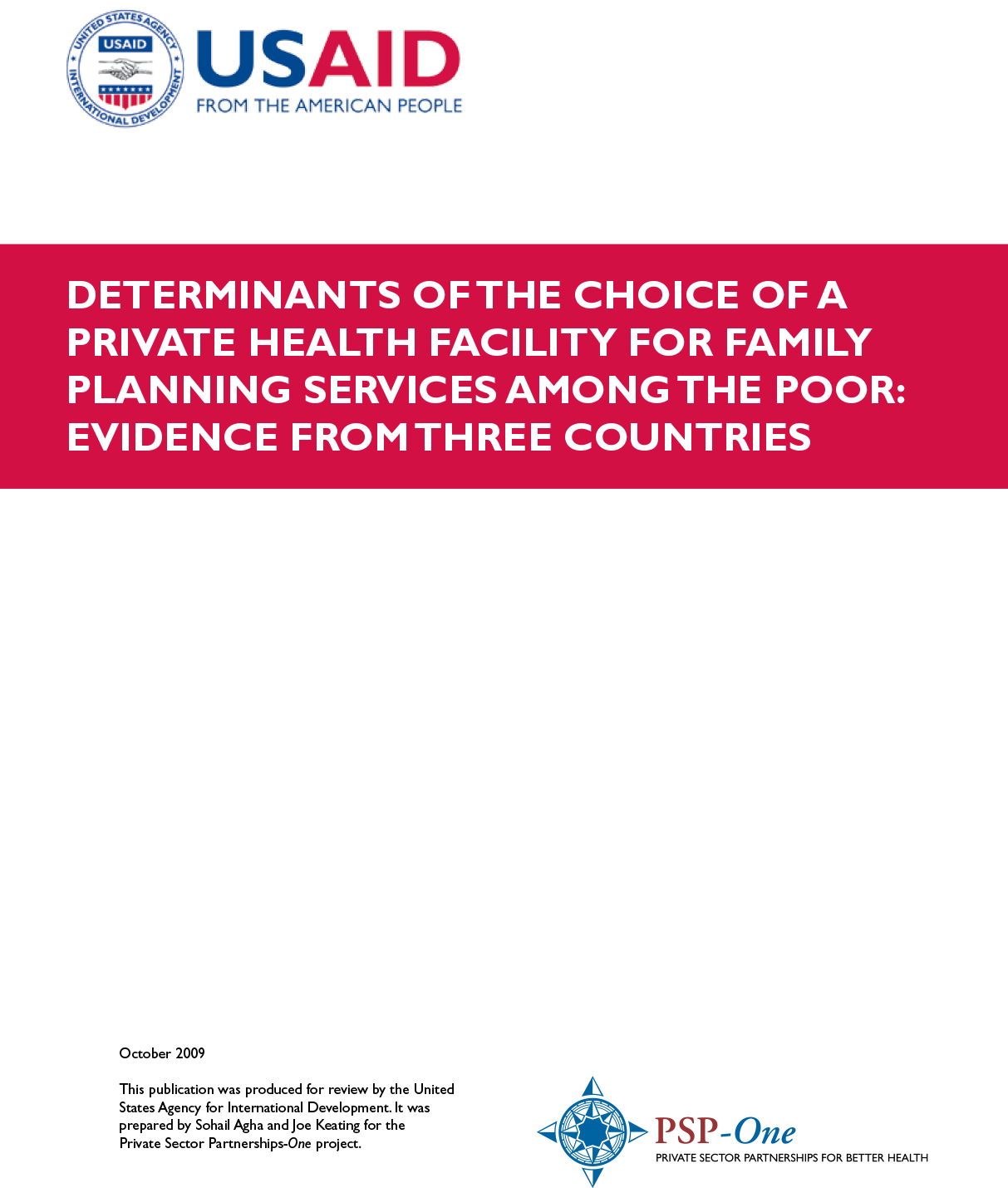
Resource Library
Determinants of the Choice of a Private Health Facility For Family Planning Services Among the Poor: Evidence From Three Countries
Objective To determine how the structure, process, and outcomes of quality influence the choice of a public or private facility for family planning services among poor clients. Methods Data from three nationally representative Service Provision Assessment (SPA) surveys conducted in Kenya, Tanzania, and Ghana were used for the analysis. These surveys contain standardized variables measuring structural factors, the process of care provision, and client satisfaction with the quality of services provided. They also include information on whether clients who sought family planning services obtained services from public or private sector facilities. Clients' education was used as a proxy for their poverty status. Multivariate analysis was used to model factors associated with the choice of a public or private facility for family planning services. Results The most important structural factor associated with a poor client's preference for a private sector facility for family planning services was the presence of a trained provider at all times. Shorter waiting times and the maintenance of confidentiality were important determinants of the choice of a private facility for the poor in Kenya and Tanzania but not in Ghana. Poor clients' satisfaction with services provided was consistently associated with their choice of a private facility over a public facility. In particular, poor clients' satisfaction with their interaction with facility staff, the convenience of their visit, and the availability of family planning methods influenced their choice of a private facility. Fewer factors explained nonpoor clients' choice of a private or public facility. Shorter waiting times, privacy during consultation, and perceived cleanliness of the facility appear to be factors that attracted nonpoor clients to private facilities. Conclusions Structure, process, and outcomes of quality have independent effects on the poor's choice of public or private facility. Findings suggest that private facilities are more responsive to the poor. It is possible that because of their higher social status, the nonpoor may be able to extract similar levels of quality of care from both public and private facilities.
Resource Type : Report
Country : Ghana, Kenya, Tanzania
Year : 2009-12-07T14:15:00
Language : English
Project : SHOPS


